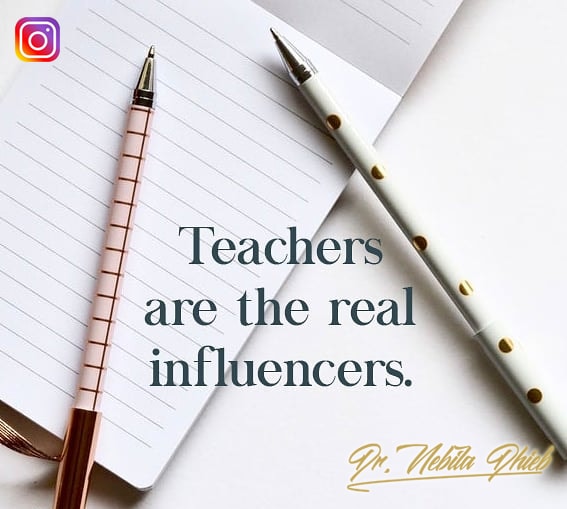Out With the Old Education System and In With Transformative Education
Delivering empowering and effective educational courses to both teachers and parents, Dr Nebila Dhieb, the inspiring educator and Founder of Transformative Education helps students fulfil their full potential. With over 25 years of teaching experience ranging from speaking at international educational conferences to presentations on English as a Second Language (ESL), Dhieb has combined her love for empowering parents to positive transformational learning experiences for not only their children but their mindsets too.
The Davi Magazine: Nebila, you have been in the educational industry for over 25 years. How would you best describe the current state of education?
Nebila Dhieb: If we agree that the role of education today is to prepare individuals to lead in the new economy, and to equip the members of society with the skillset and knowhow to operate in it, and to continue to learn and develop their minds even after leaving school, then it would be fair to say - at least to me - that formal education is barely keeping up with these new demands. Overall, with varying degrees of success between the public and private sectors, the formal educational field is serving the masses with content, facts, knowledge that is deemed important. But does this mean that learning has happened? Does it highlight the skills freshduates need for the workplace? And to what extent is it reflective of the kind of learning that one would need to make good self-fulfilling choices in life?
TDM: Traditional Education is somewhat dated as it fails to equip students and children with knowledge of personal development. Further, the majority of educational subjects taught in traditional education is not applied in everyday life (when was the last time you used algebra?) Could traditional education benefit from personal development?
Nebila: Oh, absolutely! For many decades we believed or we were led to believe that education would be our #1 ‘social ladder’ and that we need to go out there get ourselves a good degree and a good job, then everything will be alright and we will have a good life.
Today, we have hundreds of thousands if not millions of university graduates around the world who are wandering around confused as to why ‘the magic did not happen’ for them, and they are still either jobless or suddenly realise they are stuck in jobs that are too restrictive and boring.
Today, education is serving the masses with isolated bits of facts and information packaged almost in a uniform standard top-down, linear way whereas a whole new field of research from Neuroscience, Psychology and other mind-studies is indicating that learning is highly individual and personal, that there are factors such as multiple intelligences and levels of emotional intelligence that can play a crucial role in learning.
"In a nutshell, a paradigm shift is needed to
move away from dated childhood programming that
is keeping us in old ways"
of thinking of ourselves and others, of solving problems, of perceiving what is possible and available for us out there. This can only happen through the study and understanding of our mind.
TDM: We guess, that's where 'Transformative Education' comes in?
Nebila: Exactly. I believe it is crucial educational systems benefit from incorporating personal development strategies. Not only will it respond and cater to the needs of individualised learning styles but will also allow for instilling a culture of diversity and inclusion in its wider sense. Further, as entrepreneurship continues to increase, this will also shift the focus of educational institution away from the 'what' of learning into equipping people with the necessary knowledge skills/know-how enabling generational wealth - both physically and mentally. People will operate from a state of clarity, purpose and opportunity; they will learn how to stay in charge no matter what the circumstance and know-how to change their results by changing their thoughts.
In summary, with a better state of mindfulness and skillset training, school staff, teachers and administrators will make of the school environment one that is conducive to fostering in students creativity and imagination, that nurtures experiential self-directed learning, and encourages critical thinking, autonomous decision-making and leadership skills.
TDM: We've discovered, 'Transformative Education' involves having a more holistic and deeper Transformative approach to education. Institutions tend to resist change, there's no wonder the amount of students going to higher education continues to decrease. However 'Transformative Education', supports change (hence the term 'Transform-ative'). What are some of the key benefits of 'Transformative Education'?
Nebila: At Transformative Education, we believe that change is inevitable, so it makes sense that schools and educational systems remain open to refine the knowledge content it delivers as well as the tools it uses to dispatch such content. A more holistic and comprehensive approach to a learner-centred model of educating has opened the doors for drawing on a number of disciplines. Such a multi-disciplinary approach favours blending information from the fields of personal development, psychology, Neuroscience and psycho-cybernetics with existing education to respond to the evolving needs of students, teachers, parents and schools/corporations in general.
When children and parents are taught how to understand and use their mind to change any aspect of their results, their life and relationship with each other improve. When they know how to better understand themselves, they also become better at understanding others.
"Empathy, self-love, a great attitude and leadership
are all ingredients of a good solid and healthy
self-image.A healthy self-image is a base from
which all things are possible."
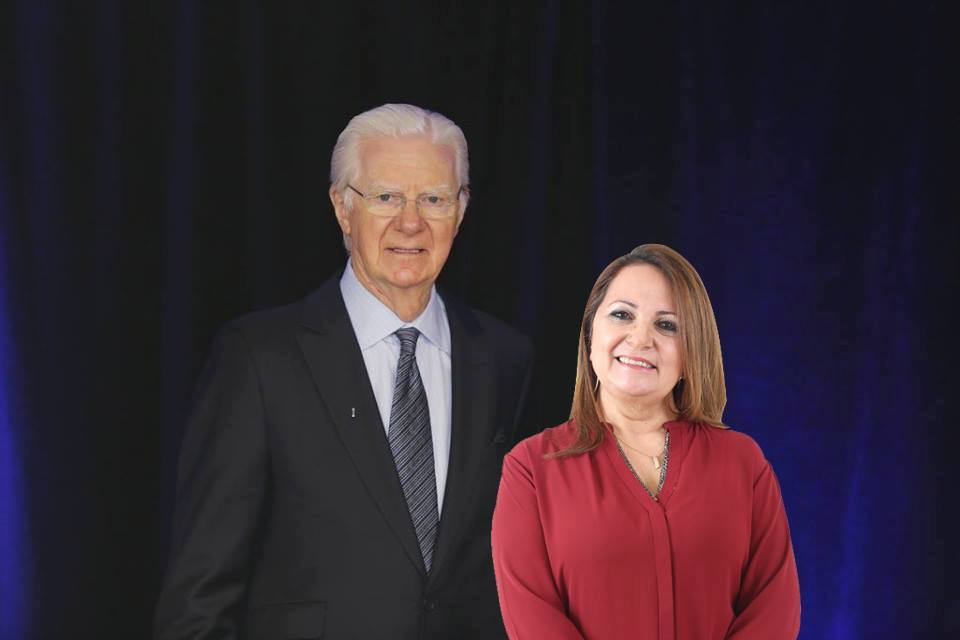
For me personally, this concept of self-image had a huge impact on my life. When I was first introduced to this concept by my mentor Bob Proctor, Master teacher in human potential and success who helped thousands of people around the work unleash their potential and change their lives, my whole life changed.
When I met Bob, I was already a successful university professor, living an almost ideal life with two happy kids and a husband. Yet somehow, I felt like I was “plateauing." The voice nagging at the back of my mind saying “is that it?” kept me pushing the limits of my awareness further, to explore who I am, to dig deep into my self-image and my childhood paradigms and how they controlled my results. This journey of self-awareness helped me better understand not only myself but also my children, my students, my colleagues, as well as positively impacting the results I was to achieve in the next ten years.
TDM: Whether one is setting personal goals, family, or business goals, having a successful mindset is key. What are some strategies parents can use to achieve a successful mindset, which can then be passed down to their child/ren?
Nebila: This is such a great question! Because in the way it is posed it sets the foundation for a deep understanding of how the mind works. Now we know that 96 to 98% of our daily life activities, thinking, and behaviours are run by our subconscious mind.The subconscious mind is like our auto-pilot system or computer software: whatever is impressed on it, it will run with it and deliver again and again every time. This is called “the paradigm”; it is “a mental program that has almost exclusive control over our habitual behaviour and almost all of our behaviour is habitual. Our paradigm is our childhood programming: it’s all those ideas, rules, values and beliefs that have been passed on by well-intentioned parents from one generation to the next, and what we do, how we talk, walk,..etc. The most important paradigm -to me personally- is self-image or the way we view ourselves.
"If our self-image is set at statements of lack and limitation such as “you are not good enough” then it will continue to run bringing us just more of the same."


So, learning from studies on self-image is huge for parents: first, parents need to reflect and better understand their own paradigm and dig deep to question their truths? Where is it coming from? Is that true or is that what I believe to be true?
Second, parents can also use this information to teach themselves to encourage the good healthy paradigms they are passing on to their kids and curb the ones that will not be serving them. Last but not least, habits are created by repeated behaviours, so parents can help their kids choose the right ones by modelling the right ones themselves.
TDM: Can a parent's relationship with their child impact the child’s school experience?
Nebila: Absolutely. From birth to age 7 the child’s subconscious mind, which is totally deductive -that is it automatically accepts and cannot reject is wide open and takes in everything it is exposed to as true. So s/he is automatically recording and storing whatever s/he is exposed to. Parents’ beliefs, perception of school, whether education is important or not, their reaction to grades and report cards will all in time form the child’s paradigms about education. Further, when a child is raised in criticism especially when the report card comes in, this develops connections between feelings of shame, guilt and embarrassment and schools and grades. On the other hand, when a child is raised in praise -good genuine praise s/he is encouraged to take decisions from an early age,to take risk and course-correct action to get to her goal, she develops intrinsic motivation and keeps focused on her goal no matter what distractions get in the way including the ability to self-regulate her social media use.
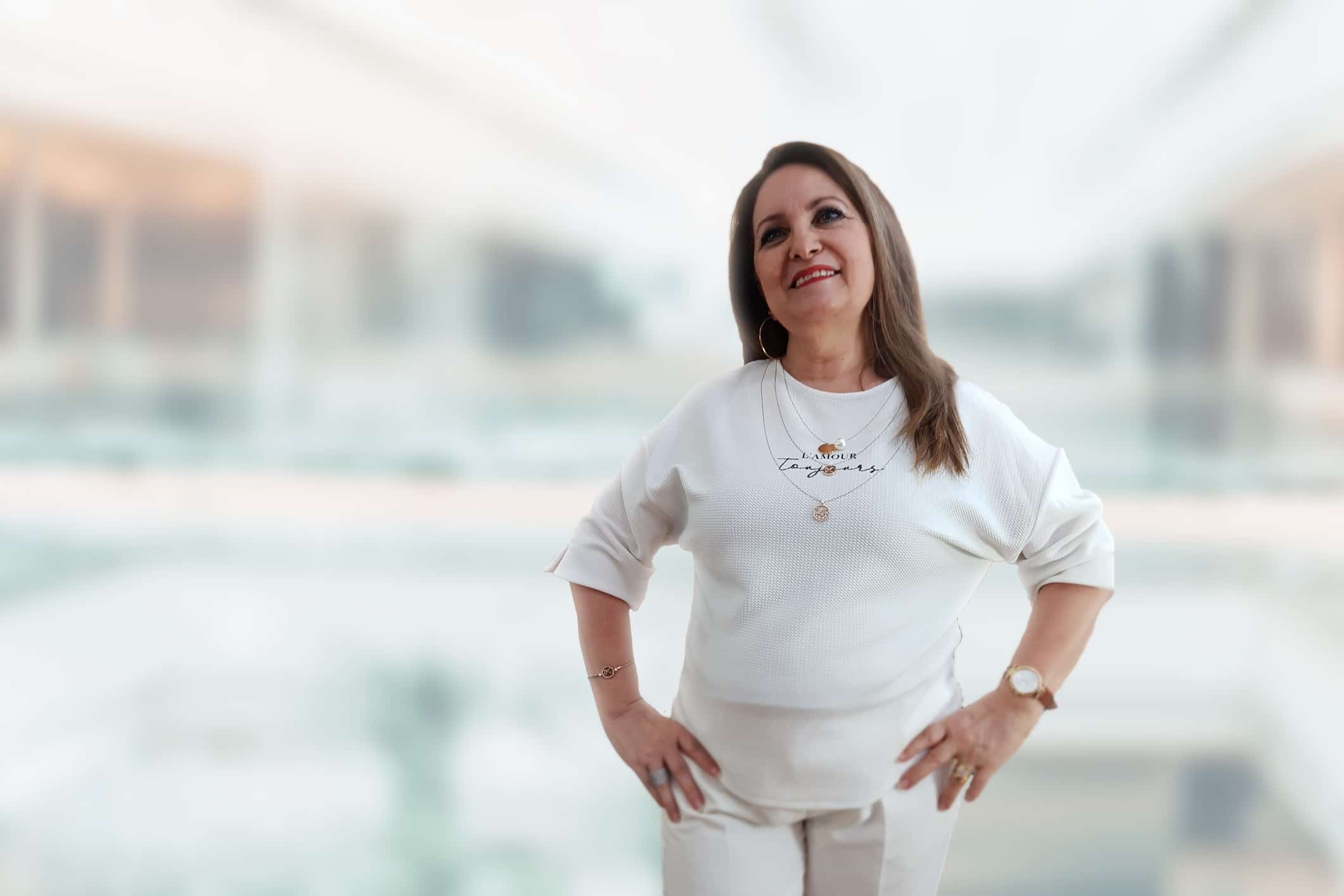
When parents distance themselves and refrain from using grades to categorise and qualify their kids with statements such as “she is not good in science subjects”,“she can never make it in physics”, and demystify grades as just an assessment at a particular point and is in no way the ultimate indicator of the kid’s potential when the parents share with their kids that they have amazing mental faculties they can use this to solve any problem and to surmount any hurdles or stumbling blocks in their studies, when the parents share with their kids that they have amazing mental faculties they can use this to solve any problem and to surmount any hurdles or stumbling blocks in their studies,
"the kid’s confidence soars high and she learns
that she can trust herself. This kind of self-love and self-appreciation is really key to building a
healthy self-image in the child"
and will, to a very large extent, determine the results the child will achieve in life.
TDM: With thousands of parents around the world feeling as though they are currently struggling with 'parenting', what advice would you give to these parents and how are they able to turn this around?
Nebila: First of all, we need to understand the origin of this ‘struggle.’ The world is going through a tremendous change in every aspect of life due to the technological advances that made massive information and knowledge in all areas easily accessible and readily available at our fingertips. These and a host of other intervening factors that are making the gap in the parent-child relationship even wider than before. Unprepared parents for the parenthood experience are shocked at the changes that have taken place since they were themselves kids and oftentimes find it difficult to let go of some of the beliefs, rules and traditions they follow in raising kids.

We need to understand that we are conditioned both genetically and environmentally and that we can raise our kids ‘by design’ or ‘by default.’ If we do not pay careful attention as to what beliefs, ideas, values, and rules we are passing on to our kids, pretty much we will be raising them ‘by default’ -that is according to the level of consciousness that our own parents passed on to us, which may or may no longer be fit for today’s kids.
As parents we set high expectations for our kids, to push them either to emulate their own success or to avoid their own failure. So, underlying these high demands on kids there might be the parents’ own fears that the kid might fail, that they might not make it in life, especially when they start comparing him with other kids.
The learning curve for parents is going to be huge if they are to raise happy, healthy and well-balanced kids. Parents need to examine their own beliefs, parents need to be ready to change some of these beliefs if they are no longer serving the younger generation, parents need to re-think the top-down and rigid boundaries they sometimes set for their kids to allow for a more symmetrical collaborative communication with their kids. All of this is possible through a process of reflection and mindfulness.
TDM: How can teachers help further support their students?
Nebila: Today, depending on school and age level, students spend an important amount of time at school under the supervision and/or in contact with school staff and teachers. Despite teachers themselves experiencing challenges, teachers more than any time before play a crucial role in the educational development of students.
In facing the “information overload, "attention-shattering” “distraction-filled” electronic devices have on every child/student, the teacher is expected not only to keep abreast with innovation but also to use them for the sake of opening and shaping minds, lifting spirits, inspiring and shining light. Teachers have to harness new techniques and ways to keep the students’ attention, and sustain opportunities for talk -human talk!- at a time where we are overwhelmed by screen technology and where we have evidence of its negatively impactful effect on kids/students: decreased attention span, increased hyperactivity, underdeveloped language abilities, delayed critical thinking, creativity and social skills -to mention a few.
However, more work is needed in educational systems, in general, to allow teachers for more space to help students exercise their creativity and individuality rather than blindly follow textbook-ridden curricula, and to focus on the process of learning rather than the product -grades!
Teachers when well -prepared for their more holistic role as educators, factor in individualised learning styles and emotional intelligence levels in the equation to support their students in their continuous day to day progress. They instil broader principles of autonomy, individual creative expression, collaboration, empathy, mindfulness, and love.
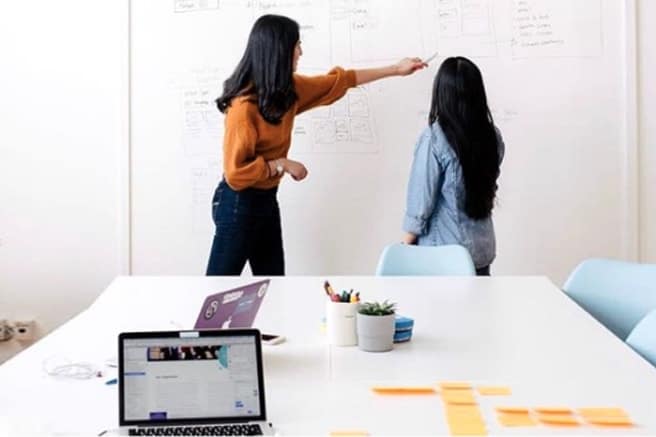
Through amplifying genuine positive feedback on a daily basis I believe, teachers can instil hope and influence their students deeply and comprehensively towards expressing their individuality, explore their skills and talents to lead a balanced inner life and reflect that in outer achievements and fulfilment.
TDM: With the increase of entrepreneurship and the need for personal development worldwide, is there still a future for traditional education?
Nebila: I tend to think that traditional education will always have a role to play in the development and growth of individuals and to prepare them to be effective and productive members of their community and to be contributors and leaders for the betterment of the world. However, traditional education, especially under the regimen of schools and other educational institutions have a long way to go to quickly catch up with the fast-growing field of personal development, neuroscience and psychology to better understand and serve the learners. Professional development for schools’ staff, administrators and teachers is to a large extent across the board lagging far behind, teaching 21st-century kids using outdated 20th-century tools, curricula, teacher training outfits, resulting in frustration and unfulfillment. How can we instil the entrepreneurship spirit, leadership skills, risk management, decision-making, mindfulness and self-image building when these concepts are inaccessible to the main school stakeholders in the first place? We cannot lead from an empty vessel, can we?
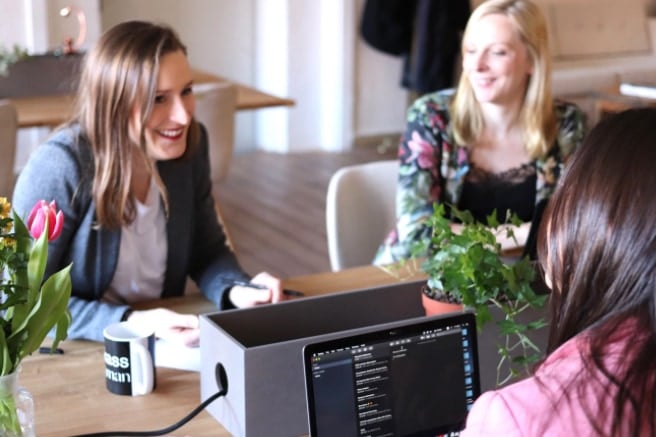
TDM: What's next for you Nebila? Where do you envision 'Transformative Education' in 3 years from now?
Nebila: In 3 years, Transformative Education will be a hub for creative and innovative ideas from diverse disciplines and fields of research that can benefit students, parents, teachers
and schools on any journey to success they may choose.In our current, highly-structured school systems often students’ self-drive and motivation may not be high, while parents push or try to drive the kids intrinsically through either cajoling or pushy “if…I will.” When we as teachers, educational staff and schools have an understanding of the human mind and how clarity, purpose, and self-initiated motivation, we can offer powerful alternatives for transformative educational change.
Though Transformative Education consulting, I want to build a go-to forum where students, parents, teachers, and schools can turn to find the resources they need to improve any aspect of their life. If they know there is something more, something better and bigger for them out there yet they don’t know how to achieve it, if they have results they don’t like and are looking for a tested and proven system to improve these results … then Transformative Education is for them.
For students …it could be better grades, less shyness, a more confident personality; For parents…it could be better empowering relationship with a child, more balance between family life and professional life; For teachers…it could be a more effective and up to date way of educating, more personal, self-care and career development for themselves; For schools…it could be a more productive, effective and efficient staff team that improves the company’s bottom line.
TDM: And if you can leave a) parents, b) teachers and c) entrepreneurs with some golden nuggets, what would they be?
Nebila: a)For parents: Examine your own paradigms:
"Go through a process of reflection and self-discovery:
what are my beliefs? What do I believe to be true regarding education, our self-worth, wealth and happiness?"

examine these beliefs and ask: have these served me in my life? Will they serve my kid if I pass them on to her in today’s world?
What if there are better ways of raising my kid? Will I be able to change from inside out to enable my kid to have better chances in life?- Raise your kids in self-love, gratitude and celebrate their uniqueness.- Allow kids to take risk, struggle and fail, solve problems on their own, and allow enough freedom and space to use that amazing mental faculty of imagination they have to dream big.
For teachers and schools, I would say that information is available at a click of a mouse and the concept of ‘pouring knowledge’ in the learner’s conscious mind is a concept that is long bygone. Today, enabling, empowering, and growing talents is the name of the game. These could be some of the reasons why learners will continue to come to our classes.
c)For entrepreneurs and all the above stakeholders, the mind is everything. You can use it to create wealth, health and happiness, or… the opposite. Childhood programming can play a crucial role in the way we lead our life but childhood programming is not set in stone, we can change it. However, we also need to remember that every moment in our life ..we are always one decision away from all the good we want. And it’s up to us to decide what to make out of it.
